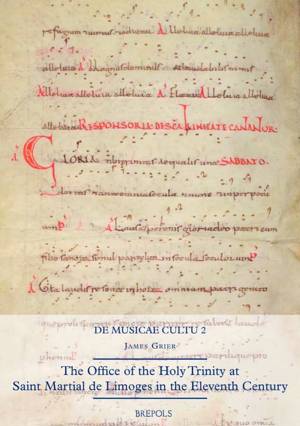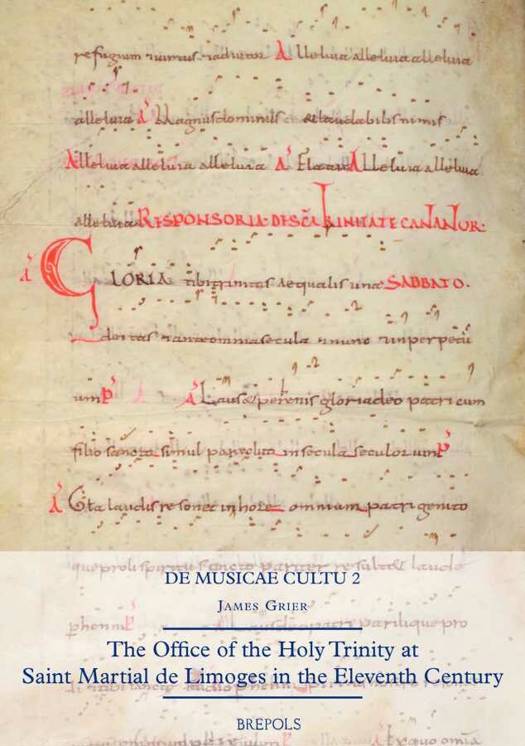
- Retrait gratuit dans votre magasin Club
- 7.000.000 titres dans notre catalogue
- Payer en toute sécurité
- Toujours un magasin près de chez vous
- Retrait gratuit dans votre magasin Club
- 7.000.0000 titres dans notre catalogue
- Payer en toute sécurité
- Toujours un magasin près de chez vous
The Office of the Holy Trinity at Saint Martial of Limoges During the Eleventh Century
James Grier
Livre broché | Anglais
68,90 €
+ 137 points
Description
The Holy Trinity forms a cornerstone of Christian belief, and references to it abound in the liturgy. Every Psalm ends with the invocation of the Father, the Son and the Holy Ghost in the Doxology supplied as the final verse. But around the turn of the tenth century, clerics decided to devote the first Sunday after Pentecost to the veneration of the Trinity. They created a new liturgy for the day, and evidence suggests that Stephen, Bishop of Liege (920) revised an earlier form of the Office into the version that saw wide dissemination in the Latin West from the end of the tenth century. The abbey of Saint Martial in Limoges exhibited considerable enthusiasm for the feast and its Office beginning in the early eleventh century. Its scriptorium prepared no fewer than five copies of the Office, including four fully neumed versions between ca. 1010 and 1050, including the earliest extant transcribable copy with music in the hand of Ademar de Chabannes, musician, scribe, homilist and historian. This edition presents a critical text of the Office as it was practised at Saint Martial during the first half of the eleventh century, beginning with Ademar's version, but also considering the other witnesses from the abbey. It includes full critical and explanatory commentary with an Introduction that discusses the role of Stephen of Liege in the authorship of the Office, the witnesses from Saint Martial and their relationship to other early witnesses of the Office, and its musical and literary style.
Spécifications
Parties prenantes
- Auteur(s) :
- Editeur:
Contenu
- Nombre de pages :
- 200
- Langue:
- Anglais
Caractéristiques
- EAN:
- 9782503574561
- Date de parution :
- 08-10-20
- Format:
- Livre broché
- Format numérique:
- Trade paperback (VS)
- Dimensions :
- 211 mm x 295 mm
- Poids :
- 907 g

Les avis
Nous publions uniquement les avis qui respectent les conditions requises. Consultez nos conditions pour les avis.






